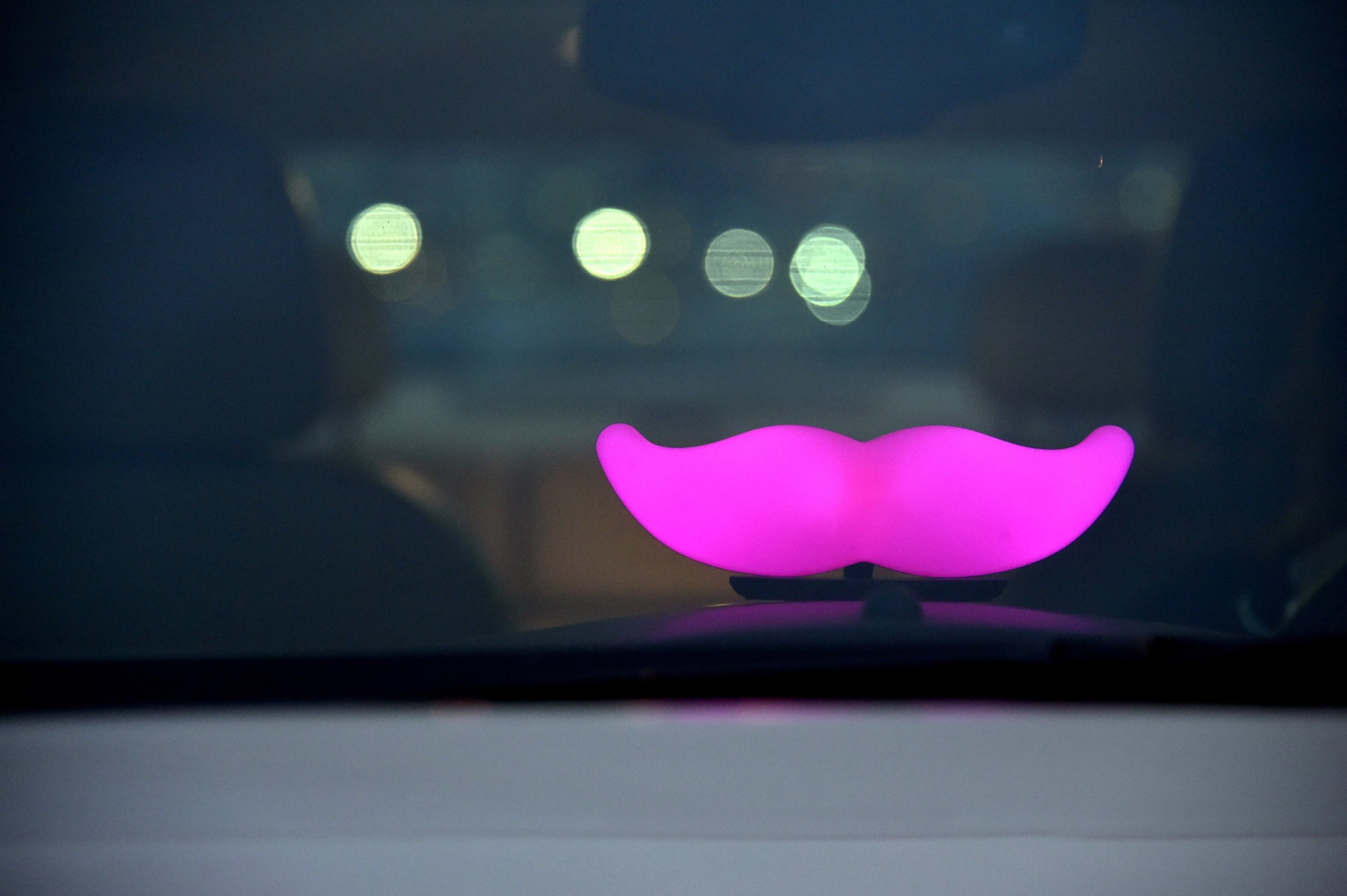
GM and Lyft announced details of a program aimed at getting more drivers to use the ride-app platform and behind the wheel of cars made by America’s largest auto manufacturer. GM’s Julia Steyn and Lyft co-founder John Zimmer also emphasized Monday that the program is proof that the companies’ newfound partnership has wheels.
Workers who would like to drive for Lyft but do not have an eligible car—or do not have a car at all—will be able to get a short-term rental for a base price of $99 a week, plus a 20-cent-per-mile fee. The “Express Drive” program will launch in Chicago later this month and then be rolled out in Baltimore, Washington, D.C., and Boston, with more cities planned to follow. For now, all the available cars will be Chevy Equinoxes.
Zimmer said that in Chicago about 60,000 applicants have been turned down in the past because their cars didn’t meet Lyft’s standards (like being a two-door, being too old or being damaged) and estimated that there are “hundreds of thousands” of people around the country who would like to drive for Lyft but haven’t bothered to apply because they are car-less.
In an infomercial-worthy twist, he also announced that if drivers make at least 40 rides per week, they won’t have to pay mileage fee. If they make more than 65 trips in a week, they won’t have to pay the base price for the rental either. “It’ll be the best program on the market,” Zimmer said.
In reality Lyft will be picking up the tab for those drivers who are helping to keep the market flooded with pink mustaches. (Though Zimmer wouldn’t specify the exact amount, he told TIME that payment to GM would come “from us” in those cases where there was no rental fee charged to the driver.) After all, the more a renter drives a car, putting additional wear and tear on it, the more value GM is putting on the line. The companies said there is no revenue-sharing as part of the deal: Lyft still makes a cut of about 20% from drivers’ fares and GM gets the rental fees.
Read more: Why General Motors Is Investing $500 Million in Lyft
With Uber already providing several programs to help drivers get access to cars—through operations like its own leasing subsidiary and a partnership with Enterprise Rent-A-Car—there’s pressure to be competitive on the details. To that end, the Express Drive base price will also include insurance, vehicle maintenance and connectivity through GM’s OnStar system, though the cost of things like gas will still fall on the freelancer.
While Lyft is also operating a pilot program with Hertz in Denver and Las Vegas, Uber’s various rental options are available in about 10 major cities, with base prices of about $210 per week for models like a Toyota Corolla. (That includes unlimited mileage, which can be a big cost for drivers who try to get their cars through traditional, mileage-limited leases.)
In January, the two companies announced that GM was investing $500 million in Lyft, and that the companies planned to band together to pursue a future filled with autonomous cars and efficient mobility options in American cities. Lyft executives often reiterate that the company’s core mission is giving people the option to not own a car and trying to fill all the seats in cars that are on the road. On Monday, GM’s Steyn said that programs like this are building a foundation for infrastructure that autonomous cars will need, given that even driver-less cars will have to be parked somewhere and overseen by a fleet manager.
Zimmer said their first formal meeting happened about five months ago, after executives at the companies had been chatting. “They wanted to hear what our version of the future was,” Zimmer told TIME, explaining that it is essentially an urban environment where people “can access transportation but not necessarily need to own” it. “We were surprised to see how much GM shared that version of the future,” he added.
Between that company’s ability to produce millions of vehicles and Lyft’s ability to bring consumer-facing software solutions to the table, both believe they can take on the formidable likes of Uber, which is now valued at $62.5 billion and making its own investments in autonomous cars. GM’s investment brought Lyft’s valuation to $5.5 billion. Steyn said that GM is “hoping for solid financial results” from the Express Drive program, and that further expansion will be determined as the companies see how it does in these first four cities.
More Must-Reads from TIME
- L.A. Fires Show Reality of 1.5°C of Warming
- Home Losses From L.A. Fires Hasten ‘An Uninsurable Future’
- The Women Refusing to Participate in Trump’s Economy
- Bad Bunny On Heartbreak and New Album
- How to Dress Warmly for Cold Weather
- We’re Lucky to Have Been Alive in the Age of David Lynch
- The Motivational Trick That Makes You Exercise Harder
- Column: No One Won The War in Gaza
Contact us at letters@time.com